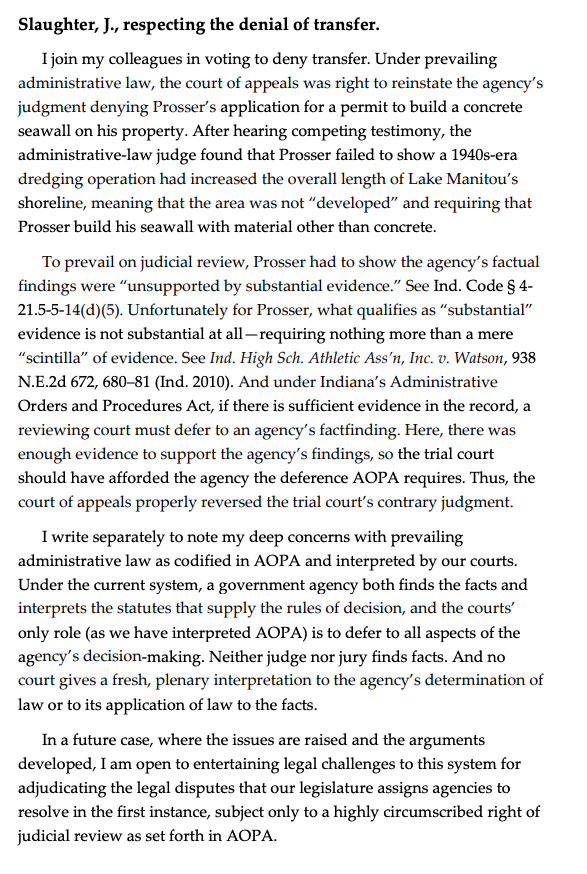D.C. Circuit Review – Reviewed: On the Banks of Lake Manitou
It was a very quiet week in the D.C. Circuit — just two opinions. In Waggel v. George Washington University, Judge Rao (joined by Judges Rogers and Garland), affirmed that a psychiatry resident could not sue her former employer because she did not request an accommodation or “rebut the University’s legitimate justifications for its actions.” And in Flyers Rights Education Fund v. Department of Transportation, Judge Randolph (joined by Judges Rogers and Millett) addressed a rulemaking request for airlines to print certain passengers’ rights on international airline tickets. The Court held that the group had standing — and, along the way, offered a helpful explanation of how the “functional equivalent” test for associational standing works for entities that are not “traditional membership organization[s]” (I confess, I did not know the “functional equivalent” test existed before reading this opinion) — but concluded that the Department adequately justified its decision to not conduct rulemaking.
So what should we talk about? Well, we could talk about how the D.C. Circuit alums on the Supreme Court handled their first week of telephonic oral argument, but that’s been done.* We could also discuss how (well-qualified) Judge Justin Walker did at his confirmation hearing, but news reports suggest that it was pretty uneventful. We could also peruse the Supreme Court’s administrative stay of the mandate in the D.C. Circuit’s case, In re Application of the Committee of the Judiciary, but that wasn’t unexpected — the stay request was unopposed.
So instead let’s consider Lake Manitou, “located in the small, bustling city of Rochester, Fulton County, Indiana.” I’ve never been there but it sounds lovely. I know about Lake Manitou because it is the subject of an interesting administrative law decision in the Indiana state courts. Last month I wrote a summary of that litigation for the Federalist Society’s State Court Docket Watch. Here is what Justice Slaughter of the Indiana Supreme Court said when his Court denied review, which will give you a sense of what the case is about:

Candidly, I do not even begin to know enough Indiana administrative law to know whether Justice Slaughter’s legal concerns are well-founded. But studying the case was a reminder to me that state administrative law is important. (My friend) Miriam Seifter writes fascinating articles on the subject and (my friend and former student) Daniel Ortner has recently penned a number of very interesting posts here at Notice & Comment about how state law is beginning to diverge from federal law.
If you have a few minutes this week (and if you are reading this post, you surely do!), then you may want to read up on what they have to say.
* Yesterday, I published an op-ed with RonNell Andersen Jones in The Hill about Justice Thomas’s questioning. The themes of that op-ed should be familiar to long-time readers of Notice & Comment.
D.C. Circuit Review – Reviewed is designed to help you keep track of the nation’s “second most important court” in just five minutes a week.



